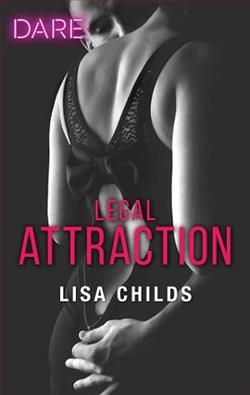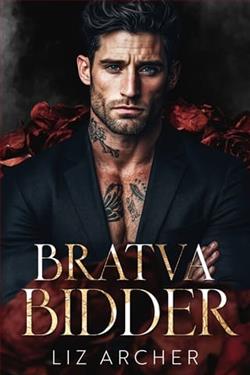Page 30 of Men in Shorts
“I help by setting an example, not by whingeing.” He stopped chewing when he heard his own words.
Brodie looked stunned. “What did you say?”
“Sorry.” Duncan wiped his mouth with his napkin, as if that would take back the insult. “I meant, not by campaigning.”
“Right,” Brodie said through gritted teeth. He stabbed his fork into one of the roasted potato wedges on his plate, so hard that the adjacent piece flew off the table and bounced across the polished hardwood floor.
Duncan laughed at the mishap, then covered his guffaw with a cough.So much for impressing him.“Erm, talking of football, do you think you might come to that match next weekend?” He put on his best puppy eyes, hoping to erase the memory of his insensitivity. “You promised.”
“I promised I’d come someday. When’s the next season start?”
“September, but—” Duncan cut himself off, too ashamed to tell Brodie he was in danger of being chucked from the Warriors. “It’s more fun near the end of the season, especially since we’ve a chance to win promotion to the Premier division.” That chance was diminishing. The Warriors needed to win all four remaining games,andthe two teams ahead of them in the table had to lose or draw more often than not, which wasn’t likely. “My parents will be at that match, so you can meet them.”
“Meeting your parents?” The caution in Brodie’s eyes morphed into astonishment. “Isn’t that—I don’t know, rushing things?”
“It’s nae big deal. They know most of my friends. And you’re more than a friend.” He gave him a hopeful smile. “Right?”
Instead of answering, Brodie studied the butterfly-effect lantern above their table with a pensive gaze. “So they’re okay with your being, you know?—”
“What, gay?” Duncan snorted. “They’re more than okay with it. They see it as a business asset.”
“I don’t follow.”
“They own a home-decor shop in the Merchant City,” he said, referring to the Glasgow district famous for high-end retail and gay nightlife. “They’ve loads of LGBTQ customers, so they’re big fans of our ‘community.’”
“And this is a problem how?”
Duncan hesitated. He always felt awkward talking about his parents—not because they were terrible, but because they were fabulous, yet still his parents.
“I waited until I was sixteen to come out to them,” he told Brodie, “because I knew they’d throw a party. Which they did, literally. They showed me off to all their gay friends like I was some sort of prize, like I gave them street cred. ‘Look what we made. Now buy some dining chairs lest the wee poof starves to death.’”
Brodie’s lip curled. “Now who’s whingeing—about having supportive parents, of all things? Boys and girls kill themselves every day because they don’t have what you take for granted.”
Duncan sighed, wanting to explain but knowing that every word could make it worse. “I don’t take Mum and Dad for granted. I’m grateful for their support. But I want them to value me for who Iam, not for what I represent.”
“How do you know they don’t?”
Duncan set down his burger, unable to swallow another bite. “Before I came out, they didn’t show much interest in me. They were so busy with the shop, they never came to my football matches or my school events. They forgot most of my birthdays, and when they did remember, their idea of celebration was to hand me a tenner so I could buy my own gift. Preferably something involving home decor.”
“Huh.” Brodie’s expression was inscrutable.
“But now that I’ve come out, I’m the apple of their fucking eyes.” Duncan stabbed his chips with his fork, spearing one atop the other. “I know I’ve got it good, parentwise. Some of my gay and trans friends have parents who beat them or chuck them into the street, or who ‘tolerate’ them but don’t look at them the same way anymore, or don’t look at them at all. When people tell me I won the gay-parent lottery, I say, ‘I know,’ because that’s exactly what it feels like. Like one day everything changed by pure luck, and one day—” He stared at the chips aligned on his fork tines. “One day, it could all change back, and they’ll be gone again.” He finally raised his eyes to look at Brodie. “Surely you hate me now.”
Brodie shook his head. “None of us has it easy. It’s just different sorts of difficult.”
Duncan smiled despite the tension, or maybe because of it. “So what’s your sort of difficult? Driving about on a Friday night with your secret boyfriend, listening to The Smiths’ ‘There Is a Light That Never Goes Out,’ reveling in the tragedy of it all?” At the sight of Brodie’s face, Duncan’s stomach sank. “Sorry. Again. I was kidding. Is that—is that really how it was?”
“It was.” Brodie’s eyes glittered with anger. “Forgive me for being an eighties gay cliché, since that’s the decade my village is stuck in. The 1880s, that is.”
“But you’re here now, and that’s what matters. You need never feel a second-class citizen again. One day when you’re ready, you can marry the man you love and raise children with him.” He spread his hands. “The great gay tragedy’s over, mate.”
“You think so?”
“I know so.”
“Then kiss me.” Brodie leaned forward. “Right here, right now, amongst all these straights. Then when we walk home up Great Western Road, take my hand and don’t let go.”
Duncan scanned the restaurant and saw nothing but typical West End clientele—young, hip, progressive folk. It was probably safe. “I’ll do it if you want me to.”















